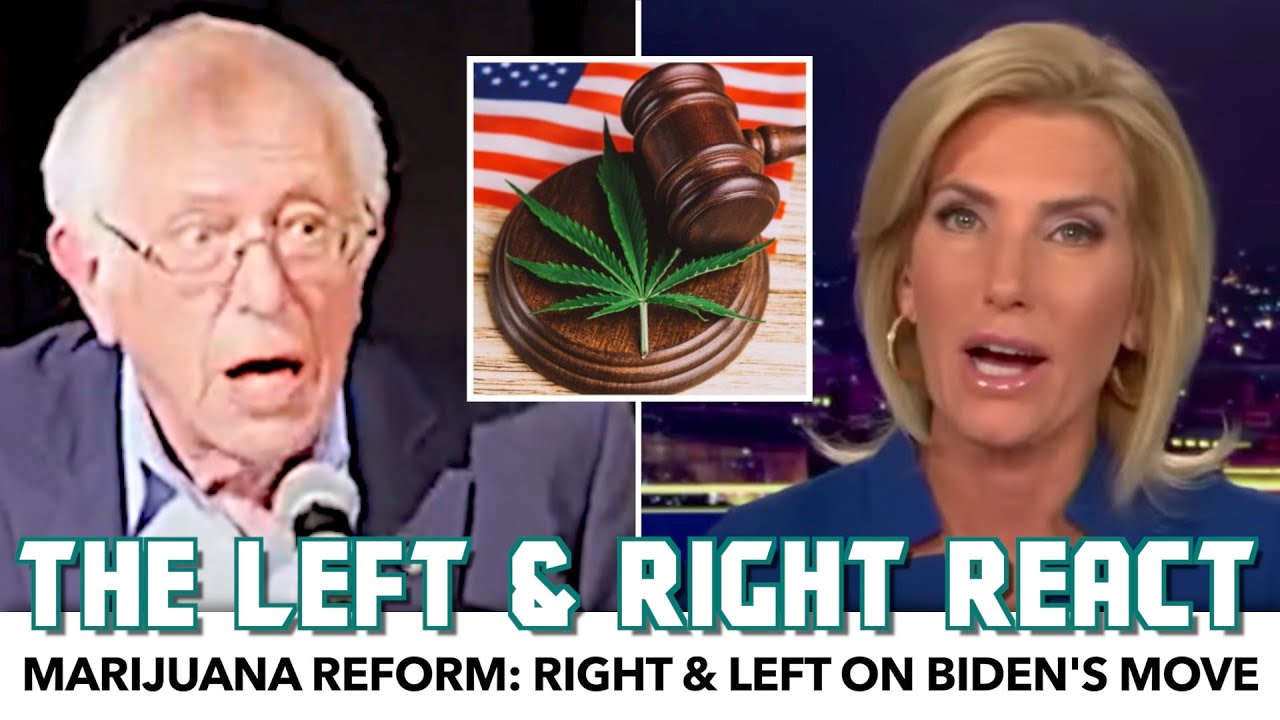President Biden’s recent marijuana policy announcement marks a watershed moment in U.S. drug policy, entailing both symbolic and practical shifts. By pardoning those convicted of simple possession and initiating a review to remove marijuana from the Schedule I category, the administration is setting a new federal tone that contrasts sharply with decades of punitive drug enforcement. This is particularly notable given Biden’s past support for tough-on-crime policies, demonstrating how political pragmatism often drives policy evolution.
The video transcript highlights how conservative media and politicians have responded in a mixture of fear-mongering, strategic silence, or cautious support. Laura Ingraham’s exaggerated claims about a slippery slope toward hard drugs reflect a long-standing “Reefer Madness” style narrative, which has been consistently debunked by empirical data. The example of Portugal’s decriminalization policies is especially instructive: by shifting drug use from a criminal issue to a health issue, Portugal has achieved some of the lowest drug-related death rates in Europe, challenging the punitive approach favored by many U.S. conservatives.
Additionally, the silence from major right-wing commentators like Ben Shapiro and Matt Walsh suggests a tacit acknowledgment of the political reality. With polls showing that roughly 75% of Americans support marijuana legalization, outright opposition is increasingly untenable. This creates a delicate tightrope for conservative media personalities, who often rely on cultural conservatism but must avoid alienating a growing segment of their audience.
The surprising support from Republican Congresswoman Nancy Mace serves as an important sign of bipartisan movement on this issue. It indicates that marijuana reform is increasingly viewed through lenses of fairness and criminal justice reform, rather than purely through ideological opposition. Such bipartisan acknowledgments can accelerate legislative progress and reduce the politicization of drug policy.
The discussion also debunks the persistent myths around marijuana as a gateway drug or a substance that leads to increased youth use and crime. The data from legalized states and countries like Canada and Portugal contradict these claims, showing no significant uptick in problematic outcomes post-legalization. This disconnect between rhetoric and reality highlights the cultural and emotional factors influencing drug debates, rather than evidence-based reasoning.
Bernie Sanders’ remarks underscore the power of grassroots activism and sustained public pressure in achieving policy change. The marijuana reform movement, composed of activists, medical experts, and community organizers, has chipped away at decades of prohibitionist policies, stigma, and misinformation. Their efforts illustrate how social movements can influence political agendas, even when initial resistance seems insurmountable.
Finally, Biden’s focus on pardoning non-violent offenders points to the broader social justice implications of marijuana reform. Criminal records related to minor drug offenses have long perpetuated cycles of poverty, unemployment, and disenfranchisement, disproportionately affecting marginalized communities. Legalization and expungement efforts are thus not just about access to cannabis but about repairing systemic harms wrought by decades of punitive policies.
In conclusion, Biden’s announcement represents a significant step toward ending the war on drugs, reflecting evolving public attitudes, bipartisan political calculations, and the success of grassroots advocacy. While challenges remain and full legalization is still a work in progress, the move to pardon possession convictions and reconsider marijuana’s federal scheduling signals a new chapter in drug policy, one grounded more in health, justice, and pragmatism than fear and prohibition.
Originally posted 2025-06-03 04:07:17.

